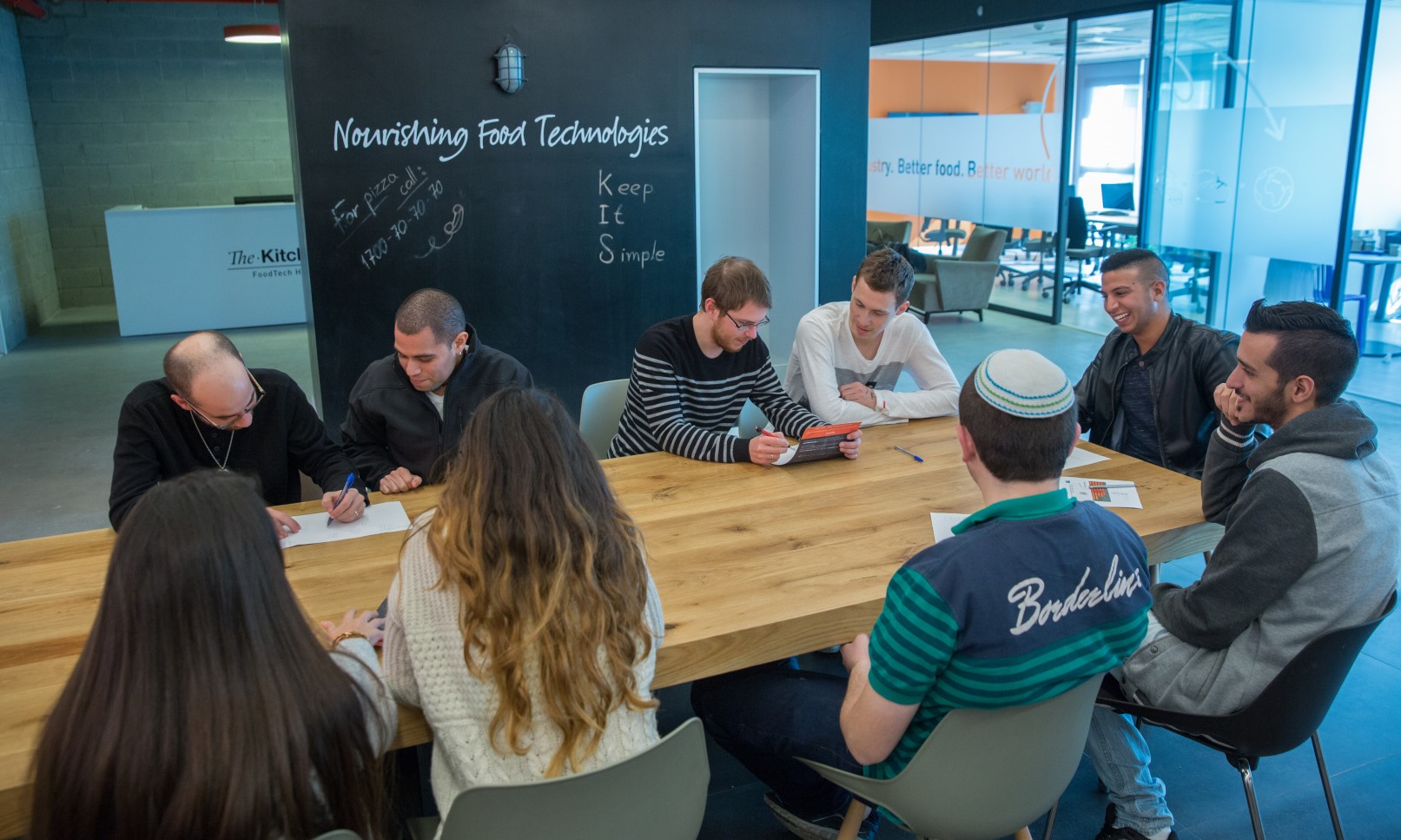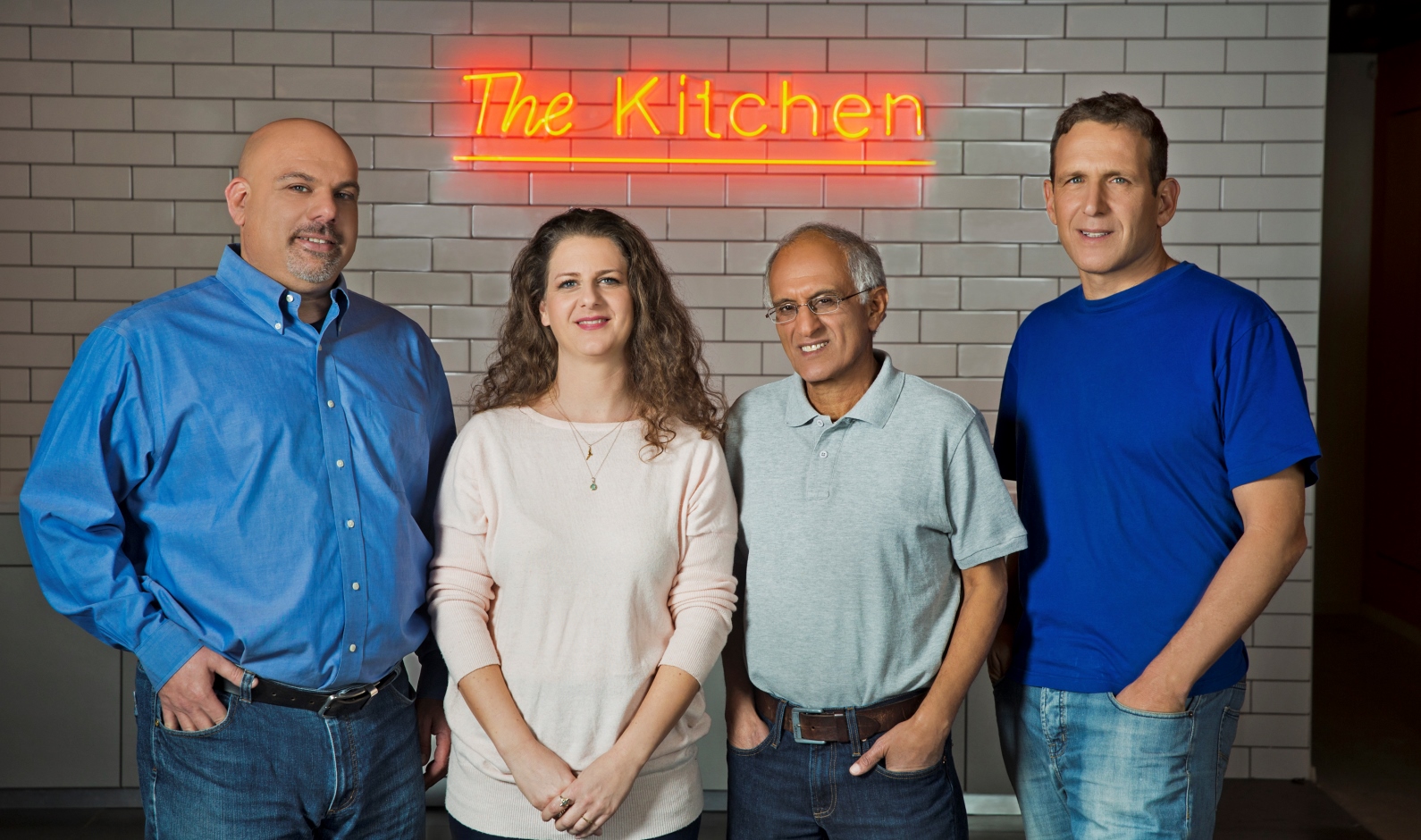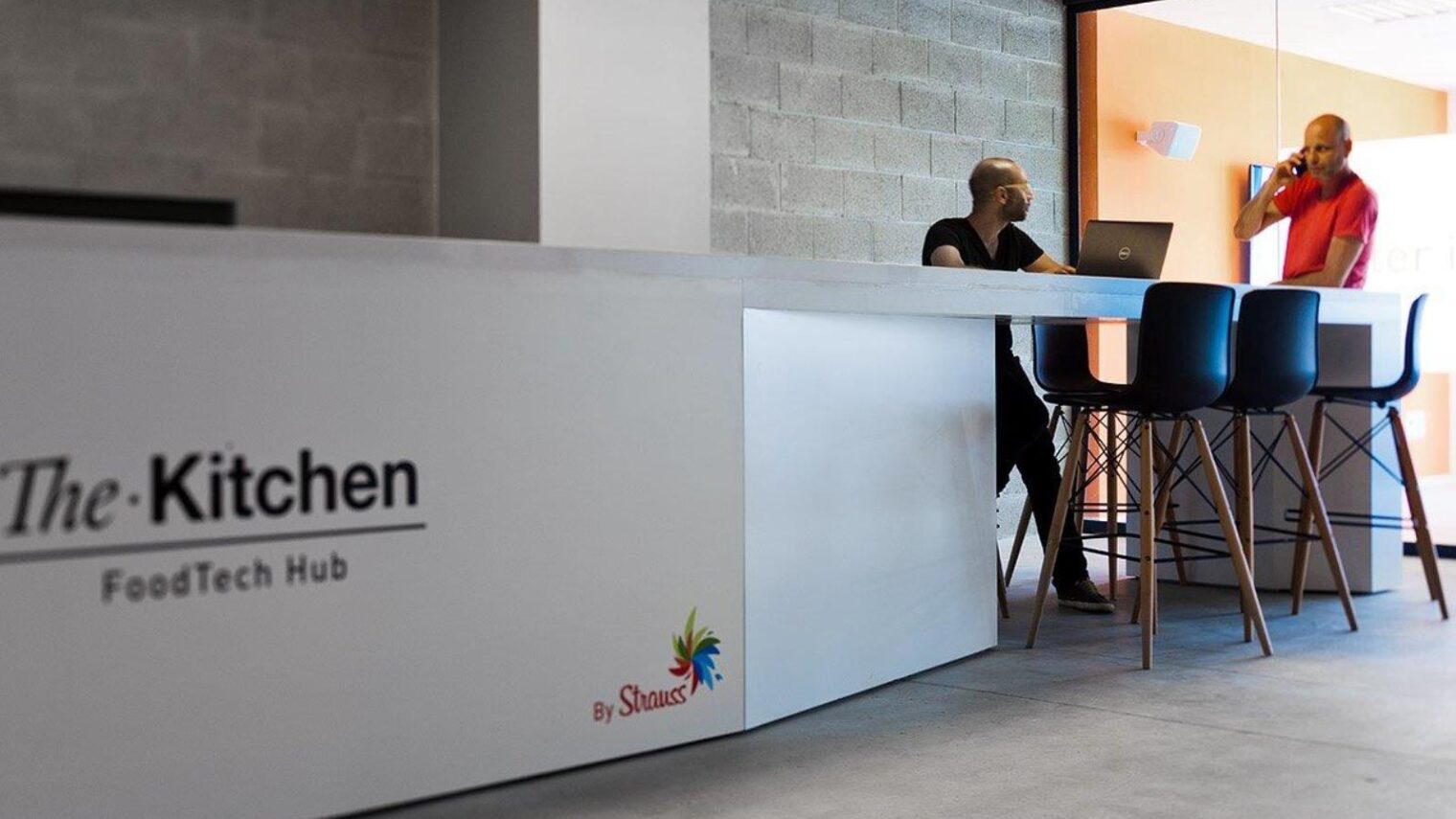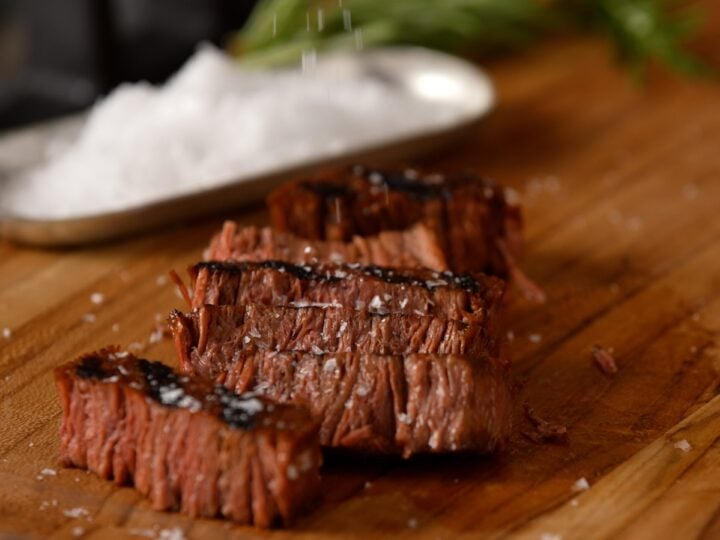The rich aroma wafting from funding, mergers and acquisitions of food technology companies in 2015 worldwide reached $5.7 billion.
Although most food-tech focuses on advances in preparing, ordering, delivering and purchasing edibles, the world’s only food-tech incubator – situated in the Israeli coastal city of Ashdod — is working toward making the world’s food chain more productive, affordable, sustainable and healthful.
“This doesn’t exist elsewhere,” says Amir Zaidman, vice president of business development for The Kitchen, opened in 2015 by The Strauss Group, one of Israel’s largest food producers, as part of the Israeli Ministry of Economy’s Technological Incubators Program.
“We are looking for technological ventures that solve a real problem or pain point in the food industry, and for dedicated, devoted and capable teams to make it happen with clear value and global scalability,” Zaidman says.
The Kitchen invests half a million dollars of seed money in every company accepted to the incubator. On average, four startups will be accepted each year for a period of 18 to 24 months.
“We think Israeli innovators have a lot to contribute to this space,” Zaidman tells ISRAEL21c. “We’ve already screened 250 investment opportunities, so there is a large variety to choose from in food-tech here.”
Vegan yogurt, food safety, robots
The first three startups in The Kitchen were Yofix, which is developing a vegan yogurt; Bactusense, which offers manufacturers a rapid system for detecting pathogens in food plants; and Deep Learning Robotics, which trains robots for food-production facilities.
“Each of them has the potential to make a breakthrough in the relevant sector,” Zaidman predicts.
“Israeli entrepreneurs are looking for the next big thing in helping the world, and the most important thing going forward is how we’re going to feed the world.”
He emphasizes that The Kitchen is interested in solutions for places where people suffer from hunger as well as places where people consume too much salt, sugar and animal fat.
“Yofix has a truly unique product that solves a problem and addresses a growing need for people trying to stay away from dairy. The solutions now offered are far inferior to dairy yogurt, and we think Yofix has a great future not only for those who don’t eat dairy but those who do but want to eat healthier without sacrificing taste or texture.”

Bactusense is setting out to revolutionize safety in the chilled-food industry. Factories today send samples to an outside lab to culture for bacterial contamination, which takes 24 to 48 hours.
“This is a real pain becauseeither products have to be held until results come back, or released before results come back at the risk of having to recall something,” says Zaidman.
“Bactusense will provide an answer at the production line within an hour. If you have a problem, you stop manufacturing. This will save a lot of money and problems and save people from food poisoning.”
Deep Learning Robotics is using artificial intelligence to address complications that have kept the food industry from becoming more robotized. Production lines in most food factories aren’t dedicated to a single product, and it’s difficult to program robots to handle a changing variety of products and tasks. These robots would learn how to do each type of task by observing human workers on the job.
Those three were recently joined by Flying Spark, which is developing an alternative protein source for humans from fruit-fly larvae.
Coming soon are two more startups: a personalization platform for online recipes and a cultured meat project based on technology from the Technion-Israel Institute of Technology.
Major companies visit The Kitchen
Strauss plans to pilot Deep Learning Robotics on one of its Elite chocolate production lines, though Zaidman emphasizes that The Kitchen is external to the Strauss Group and is collaborating with many other food companies across the world.
“We open a channel between each one of our companies and a relevant potential industry partner so product development is market-driven from day one,” he says.
Companies such as Nestle, Danone, Unilever and PepsiCo have already visited The Kitchen to see what its portfolio companies are cooking up.
The Kitchen also manages MeetUp and LinkedIn groups, and last year cohosted Israel’s fourth annual FoodTech Symposium with Alpha Strauss, the Strauss Group’s food-tech division. The next symposium, on September 26, will feature keynote speaker Mehmood Khan, chief scientific officer of PepsiCo Global Research and Development.

Zaidman points out that Israel has always led innovation trends, starting in the 1990s with electronics and semiconductors, moving into software and medical technology, media, mobile apps, and now cybersecurity.
“Israeli entrepreneurs are looking for the next big thing in helping the world, and the most important thing going forward is how we’re going to feed the world,” says Zaidman. “Our entrepreneurs are thinking about how to harness Israel’s innovation ecosystem to solve this problem.”
For more information, click here.

















